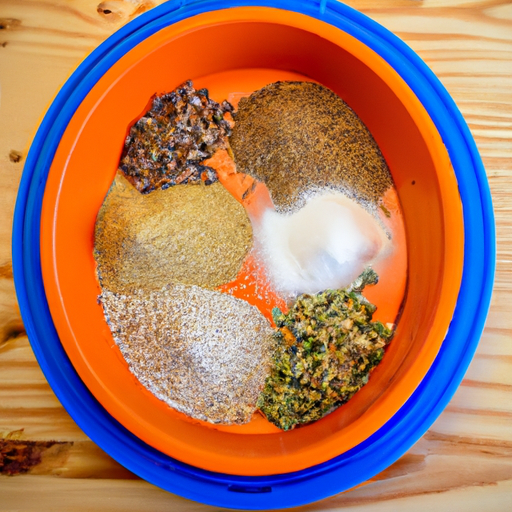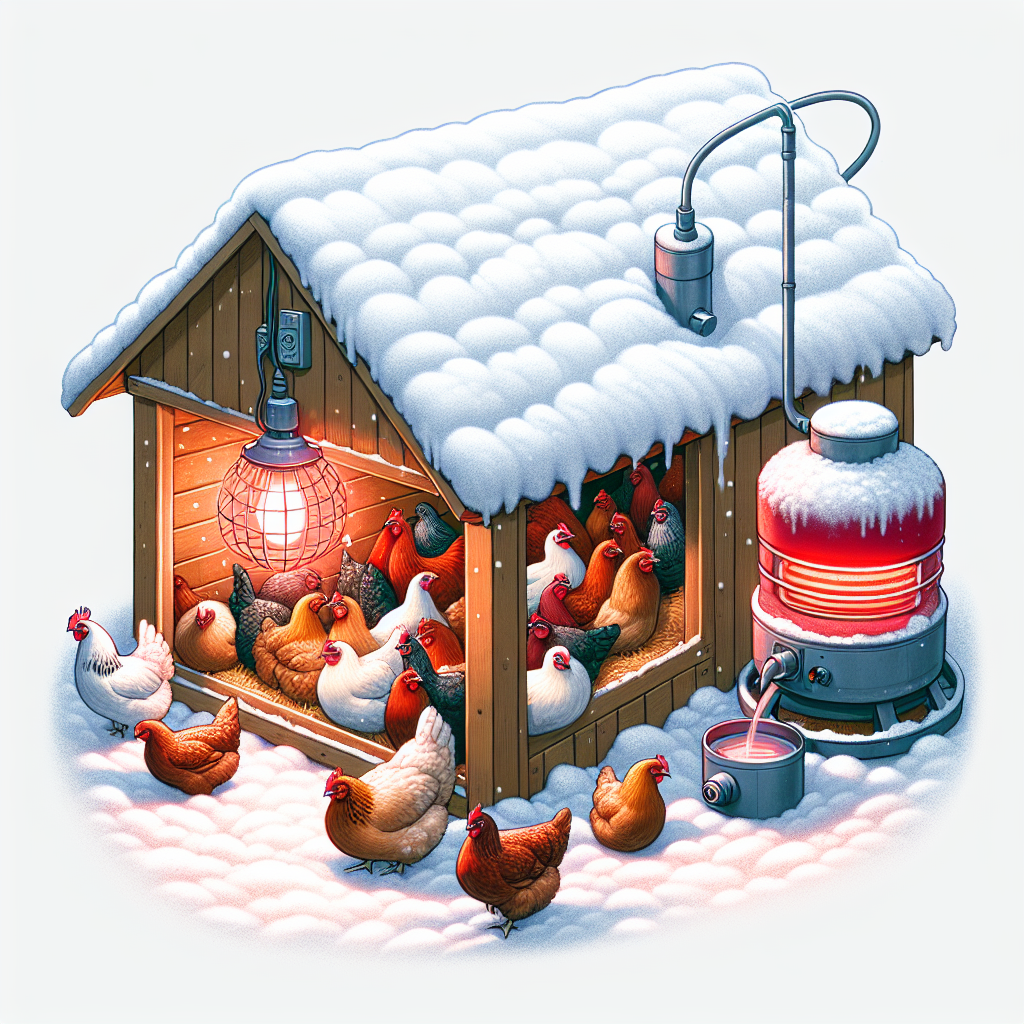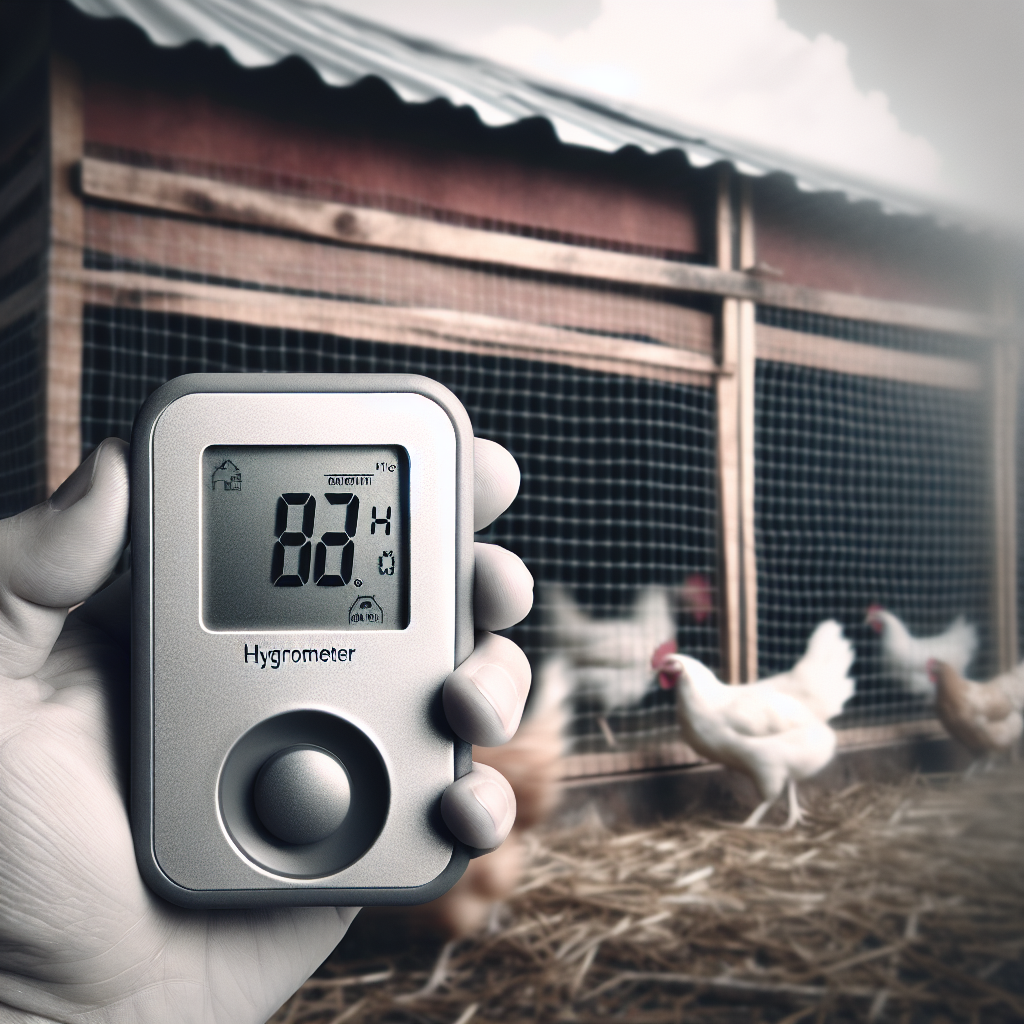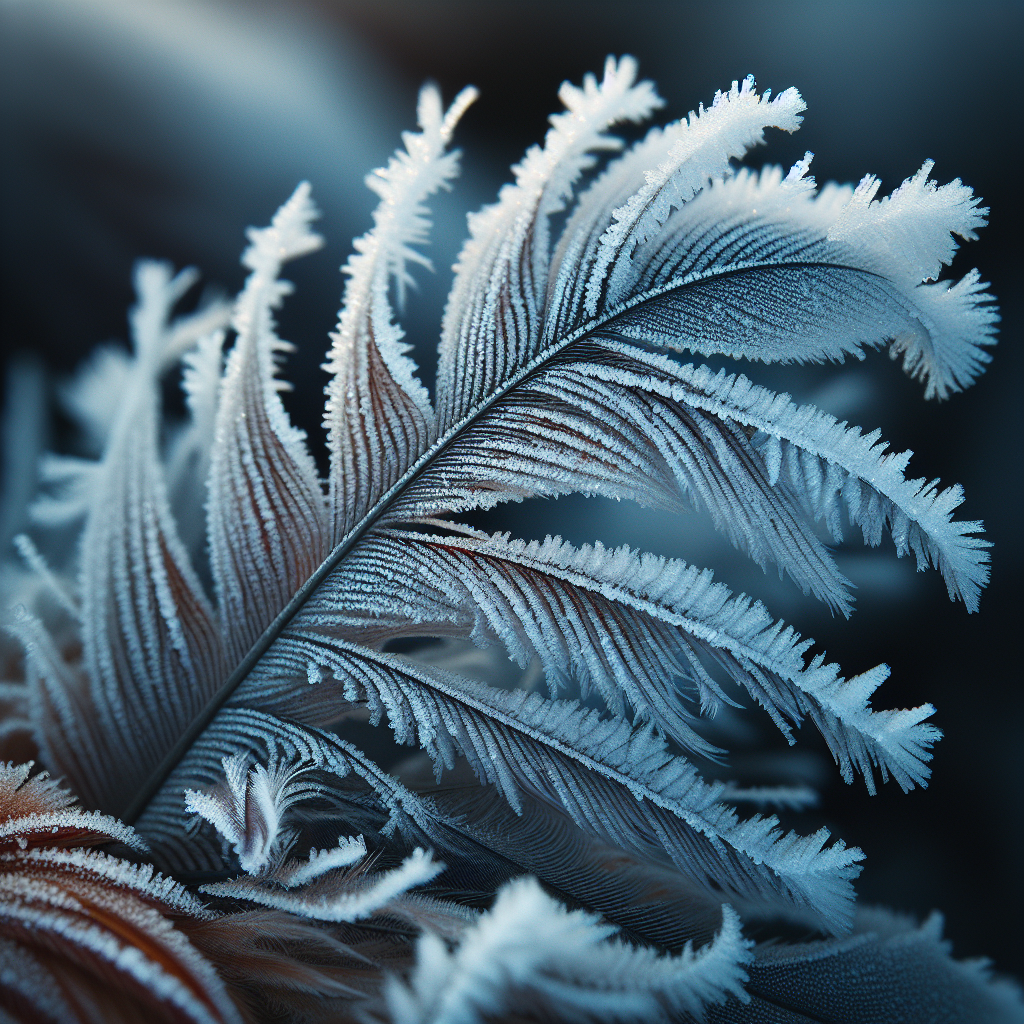As the winter months approach, you may find yourself wondering if you need to make any dietary changes or provide supplements for your chickens. After all, just like us, chickens may have different nutritional needs during the colder season. This article aims to shed light on whether specific dietary adjustments or supplements are needed to keep your feathery friends healthy and happy during the winter months. So, grab a cozy blanket, settle in, and let’s explore the world of chicken nutrition in winter!
Feeding Requirements in Winter
Adjustments to Feed Quantity
During winter, it is important to adjust the quantity of feed given to your chickens. Due to the cold weather, chickens require more energy to maintain their body temperature. You may need to increase their daily feed ration to ensure they are getting enough calories to stay warm.
Increasing Protein Intake
Protein is an essential nutrient for chickens, especially during the winter months when they need more energy. You can increase their protein intake by providing them with feeds that are high in protein, such as soybean meal or fish meal. The extra protein will help them maintain their body heat and support their overall health.
Providing Essential Fats
Including essential fats in your chickens’ diet is crucial during winter. Fats are a concentrated source of energy and can help keep your chickens warm during the cold months. You can add sources of healthy fats, such as sunflower seeds or flaxseed oil, to their feed to ensure they are getting enough of these essential nutrients.
Meeting Vitamin and Mineral Needs
Vitamins and minerals are important for the overall health and well-being of your chickens. During winter, when access to fresh greens and other natural sources of vitamins and minerals may be limited, it is essential to provide them with supplemental sources. You can do this by offering poultry-specific vitamin and mineral supplements that are formulated to meet their specific needs.
Supplements for Chickens in Winter
The Role of Calcium Supplement
Calcium is a crucial nutrient for egg-laying chickens, as it supports the development of strong eggshells. During winter, when egg production may decrease, it is still important to provide your chickens with a calcium supplement. This will help ensure that any eggs they do lay have the necessary shell strength.
Benefits of Probiotics
Probiotics are beneficial for chickens all year round, but they can be particularly helpful during winter. Probiotics promote a healthy gut environment, aid in digestion, and support the immune system. Adding probiotic supplements to your chickens’ feed can help them stay healthy and resilient during the cold months.
Using Electrolytes
Electrolytes are essential for maintaining hydration and proper body function. During winter, when water consumption may decrease due to freezing temperatures, it is important to provide your chickens with electrolyte supplements. These supplements will help replace any electrolytes lost and ensure that your chickens stay properly hydrated.
Considering Vitamin D
Vitamin D is necessary for calcium absorption and overall bone health in chickens. Since chickens depend on sunlight to produce sufficient amounts of vitamin D, it is important to consider supplementing with a vitamin D source during winter when sunlight exposure is reduced. This will help prevent any deficiencies and maintain optimal health.
Importance of Omega-3 Supplement
Omega-3 fatty acids are essential for brain function and overall health. Supplementing your chickens’ diet with omega-3 sources, such as flax seeds or fish oil, can provide them with the necessary nutrients they may not get enough of during winter. Omega-3 supplementation can contribute to improved egg quality and overall wellbeing.
Water Management in Winter
Preventing Freezing Water
Freezing water can be a challenge during winter, but it is crucial to ensure that your chickens always have access to fresh, unfrozen water. To prevent water from freezing, you can use insulated waterers or place a heating element, such as a heated base, under their waterers. This will help keep the water at a suitable temperature for your chickens to drink.
Ensuring Access to Clean Water
Clean water is essential for the health and wellbeing of your chickens, regardless of the season. During winter, when water may freeze more frequently, it is important to regularly check and clean their water containers. This will ensure that your chickens are drinking clean water and minimize the risk of bacterial or fungal infections.
Using Heated Waterers
Investing in heated waterers is an effective solution to ensure your chickens have access to unfrozen water throughout the winter. Heated waterers can maintain a consistent temperature and prevent water from freezing even in extremely cold conditions. This will help keep your chickens hydrated and healthy.
Providing Adequate Shelter
Insulating the Coop
Insulating the chicken coop is essential to protect your chickens from the freezing cold temperatures. Proper insulation will help retain heat inside the coop and provide a comfortable environment for your chickens. Insulating the walls, roof, and floor of the coop with materials like straw, hay, or insulation foam can aid in maintaining a suitable temperature.
Ventilation Considerations
While insulation is crucial, proper ventilation is equally important in a chicken coop during winter. Good ventilation will prevent the buildup of moisture and ammonia from chicken waste, which can lead to respiratory issues. By providing vents near the top of the coop to let out humidity and ammonia, you can maintain good air quality without compromising warmth.
Maintaining Dry Bedding
Keeping the coop bedding dry is essential for the health and wellbeing of your chickens. Moist bedding can lead to bacterial and fungal growth, which can cause respiratory issues and other health problems. Regularly cleaning and replacing damp bedding with dry bedding will help ensure a comfortable and sanitary environment for your chickens.
Preventing Nutrient Deficiencies
Monitoring Weight and Appetite
It is important to closely monitor your chickens’ weight and appetite during winter. A sudden decrease in appetite or significant weight loss may indicate a nutrient deficiency. Keep track of their food intake and body condition to determine if any adjustments need to be made to their diet or if they require additional supplements.
Checking for Signs of Deficiencies
Certain nutrient deficiencies can manifest in visible signs or symptoms. For example, a lack of calcium may result in soft or thin eggshells, while a deficiency in vitamins can cause poor feather quality or decreased immune function. Regularly check your chickens for any signs of deficiencies and address them promptly with proper supplementation.
Consulting a Veterinarian
If you suspect your chickens may be experiencing nutrient deficiencies or have health concerns, it is best to consult a veterinarian. A veterinarian can perform a thorough examination and provide expert advice on the specific needs of your chickens during winter. They can also recommend appropriate supplements or dietary adjustments to address any deficiencies.
Essential Nutrients for Healthy Chickens
Understanding Protein Requirements
Protein is a vital nutrient for chickens as it is essential for growth, feather production, and egg development. Chickens have higher protein requirements during winter to support their increased energy needs. Ensure that their diet includes adequate amounts of high-quality protein sources, such as soybean meal or poultry-specific feeds that contain balanced protein levels.
The Role of Carbohydrates
Carbohydrates are an important source of energy for chickens. Including energy-rich grains in their diet, such as corn or oats, can provide them with the necessary carbohydrates to support their activity levels and maintain body heat during winter. Ensure that carbohydrates are a part of their balanced diet, along with protein and other essential nutrients.
Importance of Dietary Fats
Dietary fats are crucial for chickens, especially in cold weather conditions. Fats are a concentrated source of energy that can help keep chickens warm and provide them with the necessary calories to maintain their body temperature. Incorporate healthy fats into their diet, such as sunflower seeds or flaxseed oil, to ensure they receive the essential fatty acids they need.
Providing Fiber
Fiber is important for maintaining a healthy digestive system in chickens. Including fibrous foods in their diet, such as leafy greens or vegetable scraps, can provide them with the necessary fiber content. Fiber aids in digestion and helps prevent digestive issues, promoting overall gut health in chickens.
Vitamin Requirements
Vitamins are essential for various bodily functions in chickens, including immune function, reproduction, and overall health. Ensure that their diet includes adequate amounts of vitamins, such as vitamins A, D, E, and B-complex. Natural sources like fresh greens, fruits, and vegetables are beneficial, but during winter, when access to these may be limited, vitamin supplements specifically formulated for chickens can be provided.
Key Minerals for Chickens
Minerals play a crucial role in the overall health and wellbeing of chickens. Key minerals to prioritize in their diet include calcium, phosphorus, potassium, and trace minerals like zinc and selenium. Ensure that their feed or supplements contain appropriate amounts of these minerals to support their physiological functions and maintain optimal health.
Types of Feeds Suitable for Winter
High-Protein Feeds
During winter, it is beneficial to provide your chickens with feeds that are high in protein. High-protein feeds can help meet their increased energy requirements and support their overall health. Look for feeds that contain soybean meal, fish meal, or other protein-rich ingredients in their composition.
Energy-Rich Grains
Energy-rich grains are an excellent addition to your chickens’ diet during winter. Grains like corn, oats, and barley provide a good source of carbohydrates, which can help keep them warm and provide the necessary energy for their daily activities. Including a mix of these grains in their diet will ensure they receive a well-rounded nutritional balance.
Hearty Vegetable Scraps
Vegetable scraps make for a nutritious and cost-effective addition to your chickens’ winter diet. Vegetables like cabbage, broccoli, and kale are rich in vitamins, minerals, and fiber, which are all beneficial for their overall health. Chop up these hearty vegetable scraps and provide them as a supplement to their regular feed for added variety and nutrients.
Supplementing with Pellets
Pellets can be a convenient way to supplement your chickens’ diet during winter. There are various types of pellets available, including those formulated for specific purposes such as egg production or overall health. These pellets are designed to provide a balanced mix of nutrients, vitamins, and minerals, ensuring your chickens receive a complete and well-rounded diet.
Adjusting Feeding Schedule for Winter
Monitoring Appetite
During winter, it is important to monitor your chickens’ appetite closely. The cold weather can sometimes cause a decrease in appetite, and it is crucial to ensure they are eating enough to meet their nutritional needs. If you notice a significant decrease in appetite, consider adjusting their feeding schedule or providing more enticing feeds to encourage them to eat.
Feeding Frequency
Feeding your chickens more frequently during winter can help ensure they are getting enough calories to stay warm. Instead of relying on one or two large meals, try dividing their daily ration into smaller, more frequent feedings. This will give them a steady source of energy throughout the day and help maintain their body temperature.
Avoiding Late Evening Meals
Avoid feeding your chickens in the late evening during winter. Chickens generate heat while digesting their food, and feeding them too close to bedtime may cause their body temperature to drop during the coldest part of the night. Aim to feed them earlier in the afternoon, allowing them enough time to digest their meal and generate heat before nighttime.
Consideration for Molting Chickens
Increased Protein Needs
When chickens undergo molting, their bodies require extra protein to support feather regrowth. During winter, when molting may occur, it is important to ensure your chickens are getting an adequate amount of protein in their diet. Supplementing their feed with protein-rich ingredients, such as mealworms or additional soybean meal, can provide the necessary protein to support the molting process.
Molting Period Support
Molting can be a physically demanding time for chickens, and providing them with additional support during this period is essential. Ensure that they have access to clean water, high-quality feed, and suitable supplements to help them maintain their overall health and support the regeneration of their feathers. Consider adding a vitamin or probiotic supplement to their diet to aid in the molting process.
Supplementing with Extra Vitamins
Vitamins play a crucial role in feather regrowth and overall health during the molting period. Consider supplementing your chickens’ diet with additional vitamins, such as vitamin A, biotin, or vitamin E, to support their feather regrowth and maintain their overall wellbeing. Consult with a veterinarian for appropriate vitamin supplementation recommendations based on your chickens’ specific needs.
Feeding Tips for Cold-Weather Eggs
Addressing Potential Egg Laying Changes
During winter, some chickens may experience a decrease in egg production or changes in their laying patterns. This is a natural response to the colder weather and reduced daylight hours. To support your chickens during this time, ensure they are receiving a balanced diet, including adequate protein and calcium, to support egg production when they do lay.
Providing Calcium Sources
Calcium is crucial for healthy eggshell formation. To support your chickens in laying strong and healthy eggs during winter, make sure they have access to calcium sources such as oyster shells, crushed eggshells, or calcium supplements. Offering these calcium sources separately from their regular feed will allow them to consume them as needed.
Supporting Healthy Shell Formation
Supporting healthy eggshell formation during winter is essential to prevent shell quality issues. In addition to providing a calcium source, ensure your chickens are receiving a well-balanced diet that includes essential nutrients like vitamins and minerals. These nutrients play a vital role in the development and maintenance of strong eggshells, supporting overall egg quality.
In conclusion, making necessary adjustments to your chickens’ feeding requirements in winter is crucial to ensure their health and wellbeing. Increasing their feed quantity, providing adequate protein, fats, vitamins, and minerals, and maintaining access to clean water are all essential steps in supporting your chickens during the cold months. Consider supplementation with calcium, probiotics, electrolytes, vitamin D, and omega-3 to address specific winter needs. Additionally, providing proper shelter and preventing nutrient deficiencies through regular monitoring and consulting a veterinarian will contribute to your chickens’ overall health. Understanding the essential nutrients, feeding schedules, and suitable feed types for winter conditions will help you provide the best care for your flock during the colder months. By implementing these feeding tips and strategies, you can ensure that your chickens stay healthy, warm, and continue to lay quality eggs even in the coldest of winters.




